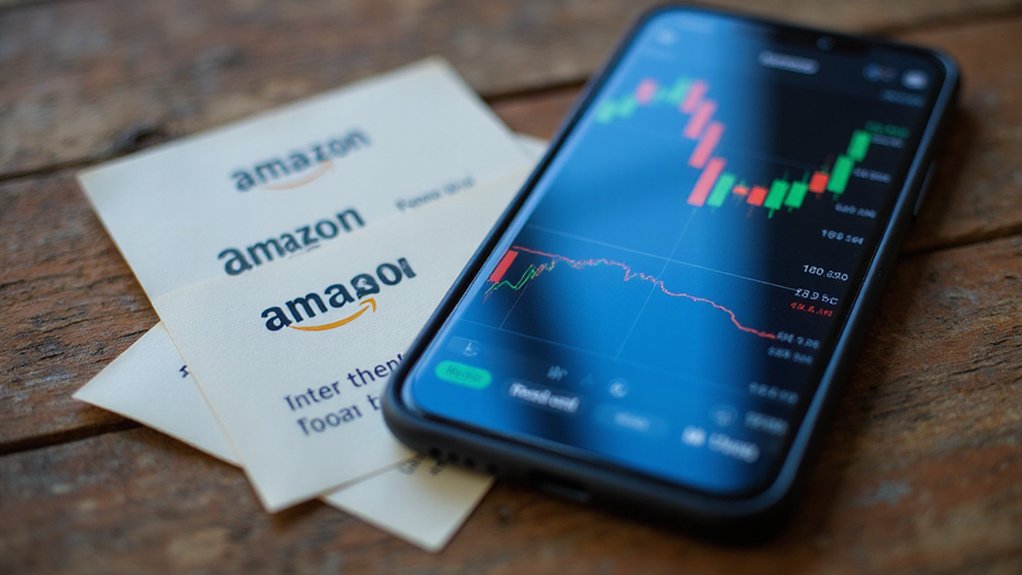While traditional investors have long accepted the tyranny of market hours and brokerage gatekeepers, the emergence of tokenized Amazon stock (AMZNX) and direct AMZN trading on crypto exchanges represents a curious evolution in financial accessibility—one that promises 24/7 liquidity and fractional ownership starting at $1, though not without introducing a fascinating array of custodial risks and regulatory ambiguities.
Platforms like Phemex offer AMZNX tokens backed by fractional AMZN shares held by regulated custodians, while Bybit has pioneered direct Amazon stock trading paired with USDT—a development that would have seemed fantastical to equity traders just a decade ago.
These blockchain-based solutions, deployed on Solana and Ethereum networks, theoretically maintain price parity with underlying shares through smart contract automation, though the operative word here is “theoretically.”
The mechanics reveal both promise and peril. Smart contracts automate issuance and redemption processes, reducing settlement risks while enabling global participation without traditional brokerage constraints.
However, the system’s Achilles’ heel emerges during periods of extreme volatility or technical disruption, when price discrepancies can exceed 300%—a phenomenon that transforms arbitrage from opportunity into existential crisis for uninformed traders.
Custodial arrangements introduce additional complexity, as tokenized stocks depend entirely on third-party custodians maintaining underlying share reserves. The transparency of these arrangements varies considerably, with real-time audit processes often obscured behind corporate opacity.
Additionally, dividend pass-through mechanisms remain significantly absent, meaning investors sacrifice corporate actions for trading convenience—an ironic trade-off that prioritizes speculation over ownership benefits.
Liquidity dynamics present their own contradictions. While 24/7 trading eliminates traditional market hour constraints, it simultaneously introduces spread widening during off-hours when institutional participation wanes.
Smaller platforms suffer from thin order books, creating slippage risks that can devastate position sizing strategies. The accessibility of AMZNX provides an alternative to Amazon’s full share price, which currently exceeds $223, making it attractive for investors seeking fractional ownership opportunities.
Regulatory oversight remains fragmented across jurisdictions, creating enforcement gaps that traditional equity markets have largely resolved.
The potential for sudden platform restrictions, delistings, or custodian failures introduces systemic risks that make traditional brokerage concerns seem quaint by comparison. Amazon’s recent stock performance has been influenced by macroeconomic uncertainties including inflation concerns and tariff policies, creating additional volatility layers for tokenized trading platforms.
The democratization of Amazon stock access through crypto channels represents genuine innovation, yet investors must navigate an ecosystem where 300% price mismatches serve as stark reminders that financial evolution rarely occurs without growing pains. Unlike traditional finance, these platforms operate without deposit insurance protection, meaning investors face potential total loss without conventional recovery mechanisms.









